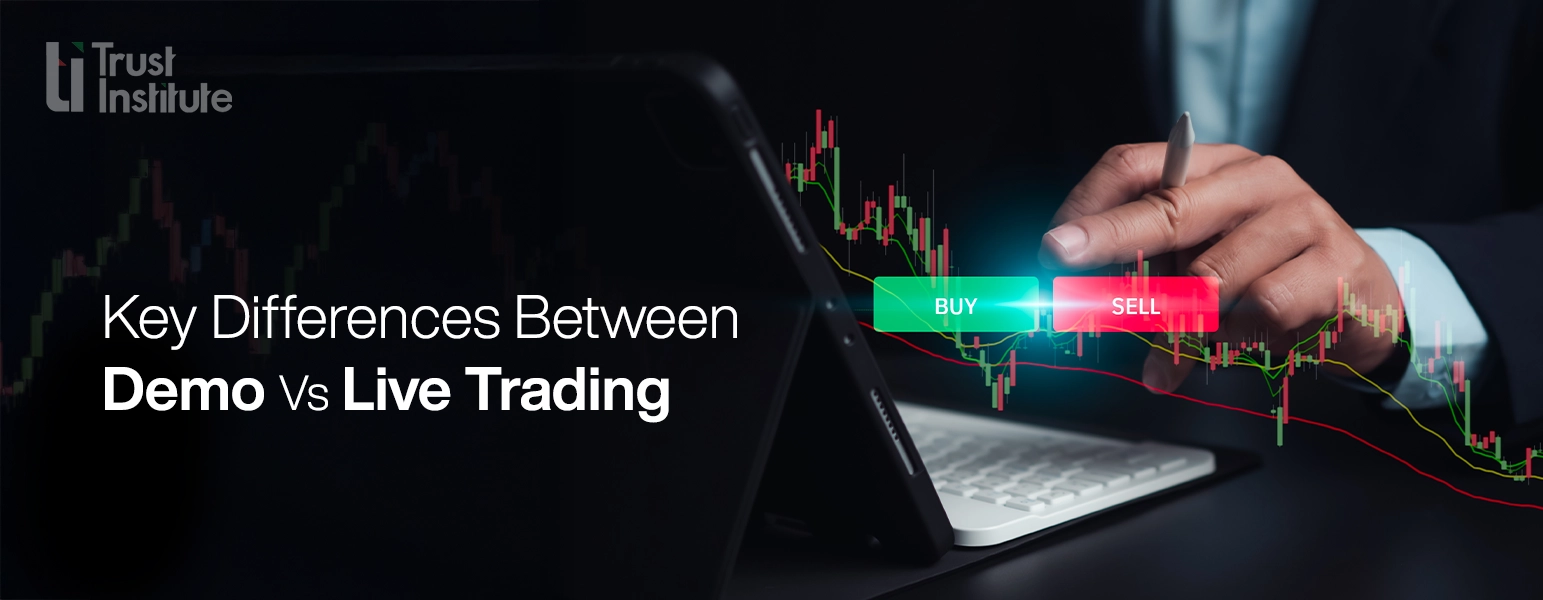Explore the world of financial trading and
gain the knowledge and tools for success with our expertly
written articles and blogs.

Day Trading vs Swing Trading: Which One Suits You

During the 2020 COVID-19 lockdowns, a surge of new traders entered the financial markets. With increased market volatility and more people working from home, many began exploring different trading styles. Some, taking advantage of flexible schedules, dove into day trading, making multiple trades within a single day to capitalize on rapid price movements. Others, balancing work and personal responsibilities, leaned toward swing trading, holding positions for several days to benefit from broader market trends.
This period highlighted how important it is to find the best trade strategy that aligns with your lifestyle, risk tolerance, and long-term goals. Whether you’re looking into currency trading classes, stock trading lessons, or online forex trading platforms, understanding these two strategies is a key step in building a strong foundation.
What is Day Trading?
Day trading is a fast-paced strategy where traders buy and sell financial instruments within the same trading day, eliminating the risk of overnight market moves.
Key Features of Day Trading:
- Short Holding Periods: Trades last from a few minutes to a few hours.
- High Trading Volume: Multiple trades are executed within the same day.
- Dependence on Volatility: Profits come from small, quick price movements.

Ideal For:
- Individuals who can dedicate full-time attention to the markets
- Traders who are quick decision-makers
- People who thrive in fast, high-risk environments
If you’re planning to learn online trading, especially in a short-term, action-packed style, day trading may be right for you.
What is Swing Trading?
Swing trading involves holding positions for days or even weeks to capture price trends over time. This method suits those who prefer a balance between active trading and long-term investing.
Key Features of Swing Trading:
- Longer Holding Periods: Trades span multiple days or weeks.
- Less Screen Time: More analysis, less real-time action.
- Focus on Trends: Utilizes patterns, support/resistance levels, and trend indicators.
- Tools Used: Daily and 4-hour charts, candlestick patterns, volume indicators.
Ideal For:
- Professionals with other commitments
- Traders with a medium risk appetite
- Individuals seeking a more thoughtful, structured trading plan
Swing trading is often covered in currency trading training, foreign exchange trading courses, and smart trading tutorials designed for busy professionals who still want to build strong trading skills.
Day Trading vs Swing Trading: A Quick Comparison
|
FACTOR |
DAY TRADING |
SWING TRADING |
| Time required | High (Full-day commitment) | Moderate (1–2 hours/day) |
| Risk Level | High (frequent trades, tight stops) | Moderate |
| Stress factor | High | Lower |
| Return Potential | Small, quick gains | Larger gains over time |
| Trading Frequency | Multiple trades daily | Few trades per week |
Which One Is Right for You?

Choosing the right style depends on your personality, schedule, and trading goals:
- If you enjoy rapid decisions and can dedicate time to the markets, day trading may be your path.
- If you prefer a strategic approach with time to analyze, swing trading might be more your style.
No matter your choice, consistent success requires discipline, a clear trading plan, and continuous education. Look for trading forex education resources that provide both theory and real-market practice.
Conclusion
Day trading and swing trading are two powerful approaches to the financial markets. While day trading focuses on speed and precision, swing trading emphasizes analysis and patience. Understanding their differences helps you choose a style that complements your strengths and lifestyle.
If you’re ready to learn to trade the forex market, joining a structured program can make all the difference. The Trust Institute in the UAE offers comprehensive trading courses, whether you’re a beginner or looking to refine your skills. From forex trading tutorials to full-fledged currency trading courses online, Trust Institute combines expert mentorship with practical learning.
Explore our forex classes, trading workshops, and online forex trading classes to start building your smart trading future today. Join us and gain access to top-rated trading academy reviews, tools, and guidance that help you master the markets confidently.
All blogs
©TRUST TRAINING AND DEVELOPMENT INSTITUTE 2026
Disclaimer: Trust Institute is a KHDA-licensed educational institution based in Dubai, UAE. All training programs, materials, and content offered through our website and in-person sessions are provided strictly for educational purposes. We do not offer financial or investment advice, and we do not engage in or promote any trading activity.
Our courses are designed to increase knowledge and understanding of financial markets. Trust Institute is not a brokerage firm, does not manage client funds, and does not participate in any trading on behalf of its students.
Participation in financial markets, including Forex trading, involves significant risk and may not be suitable for everyone. Individuals are encouraged to conduct their own research and consult with licensed financial professionals before making any financial decisions.
By accessing our content or enrolling in our courses, you acknowledge and accept that Trust Institute is not liable for any financial outcomes resulting from the application of educational material shared. You agree that your use of this information is at your own discretion and responsibility.
Trust Institute is fully licensed and regulated by the Knowledge and Human Development Authority (KHDA) in Dubai, United Arab Emirates.






















































